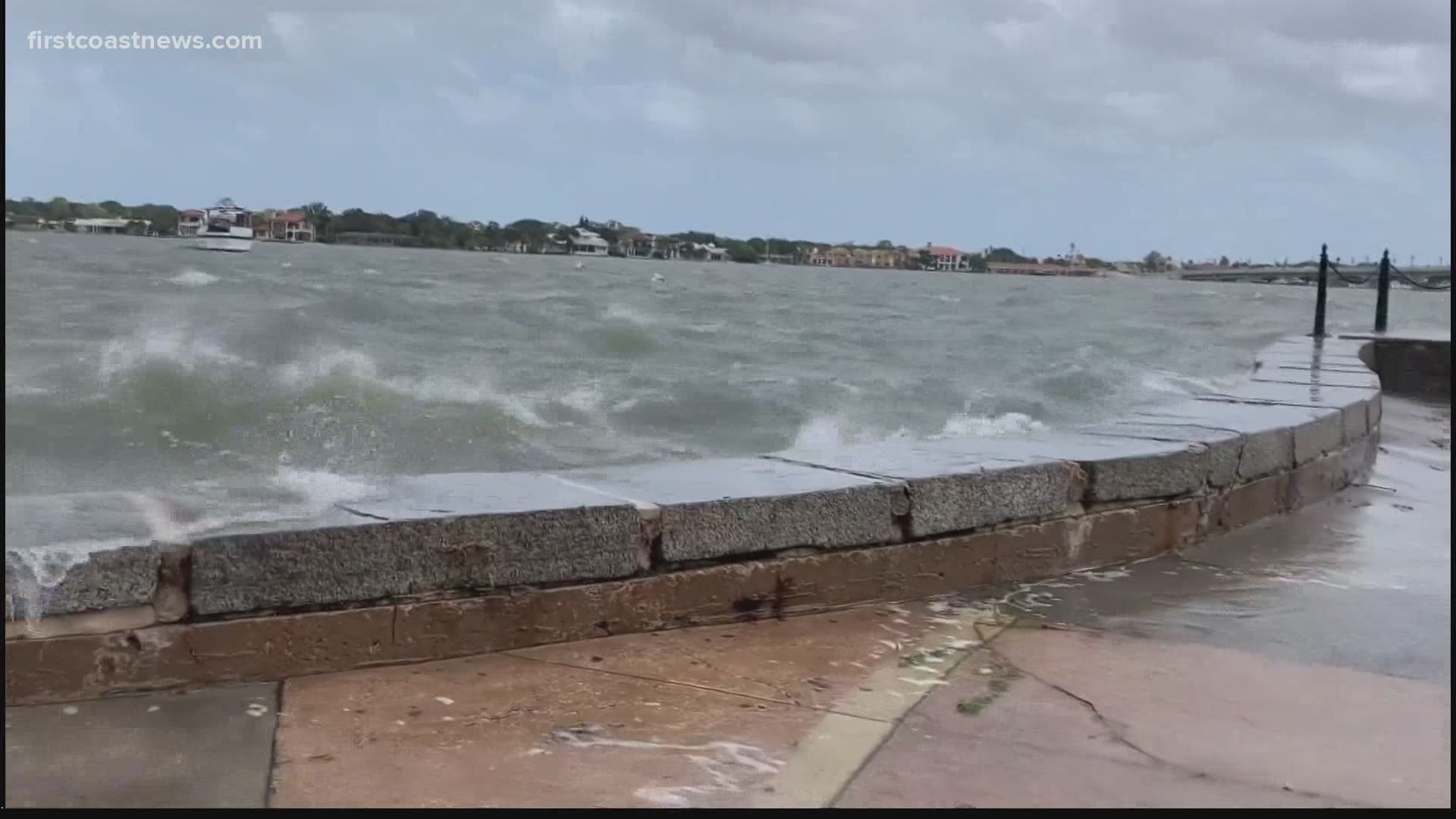ST. AUGUSTINE, Fla. — Since Hurricane Matthew, the people of St. Augustine and St. Johns County have experienced a major flooding event nearly every year. Those events include hurricanes Matthew, Irma, Dorian and nor'easter that came by over the weekend.
The floods resulted in soaked yards, water-covered streets and even flooded homes and businesses.
Is this the new normal?
St. Augustine's Public Works Director Rueben Franklin said, "Indications are we are going to see events like this happen more frequently."
The City of St. Augustine is low-lying and surrounded by water.
For a few years now, the city has been working on projects to alleviate flooding in neighborhoods, such as in the Fullerwood community. A big new pipe was installed by the marsh, and it helped this weekend, according to neighbors. Macaris Street hardly flooded, but just two blocks away there was indeed water on the roads.
"It’s an ongoing process for the city. It’s nothing one project is going to solve," Franklin said.
City Manager John Regan said, "Every time we do some type of small project and elevate an area or make a change, that makes an improvement, but it’s not the total solution."
"There’s no silver bullet that solves the problem," Franklin said.
The problem is there are more storms on a more consistent basis. Many say it's because of climate change. While there are multi-million dollar projects planned to help ease flooding in St. Augustine, they "take a long time to work through the design and permitting, and also the construction phase."
For example, an effort to help the area around Lake Maria Sanchez is in the $15 million range, and Franklin reports it will take about three years to finish.
In the meantime, how many more storms will push water into St. Augustine neighborhoods?
Some city leaders, such as Regan, say you have to look at the root cause. "We have to keep working toward decreasing the frequency of these types of storms," Regan said.

